'Sadaiv Atal' - 7 things to know about the gem of Indian politics; Atal Bihari Vajpeyee ji
Atal ji would always say, “Indian Democracy’s greatest strength is that we have always put nation ahead of politics”. He is known as the face of healthy politics and healthy political democracy in the world.
Total Views |
India lost one of the most valued and respected politician on Aug 16, 2018 when Former Indian Prime Minister Atal Bihari Vajpeyee ji took his last breath at AIIMS, New Delhi. The Former Prime Minister, although was a staunch opposition leader against the Congress, after his demise left every senior leader from Indian politics in tears, who had witnessed Atal ji's governance. Atal ji would always say, “Indian Democracy’s greatest strength is that we have always put nation ahead of politics”. He is known as the face of healthy politics and healthy political democracy in the world. On his death anniversary, let us try to understand what made him look so;
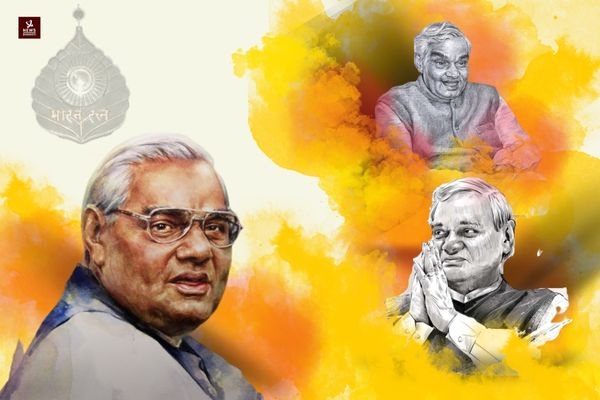
1. Started as a 'Journalist'
Atal ji always knew no matter what path he chooses in life, serving the country will be what he would do, which is why, at the young age of 15 years, he volunteered for the Rashtriya Swayamsevak Sangha. Atal ji always had keen interest in Indian politics. He considered politics as an effective medium to serve the nation. Considering his own impactful writing and blending it with his love for politics, Atal ji first completed his education and politics and chose 'Journalism' for his career. Not many know, but 'Journalism' was Atal ji's foremost professional choice in life.
2. Parliamentarian from Balrampur
Atal ji's career in Indian politics effectively started in 1957 after he was elected as a Parliamentarian from Uttar Pradesh's Balrampur, one of the three seats he was fighting the Lok Sabha elections from, the other two being Mathura and Lucknow.
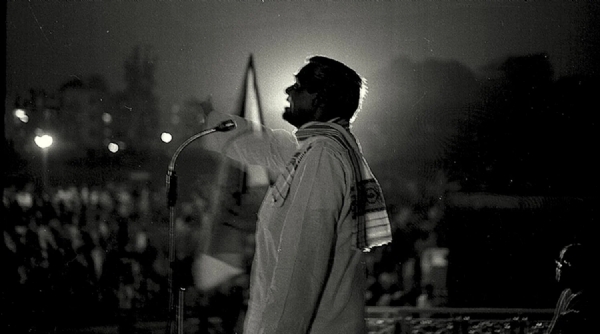
However, the victory was followed only after utter hard work, ever since the formation of Bharatiya Janasangha in 1951, which he was a crucial part of. Balrampur became an important landmark in his politicl career that followed ahead.
3. Nehru weighed his Prime Ministerial potential perfectly
Atal Bihari Vajpeyee ji first became the Prime Minister of India in 1996 and later again in 1998. However, his potential to become the Prime Minister of India was even acknowledged by the first Indian Prime Minister - Jawaharlal Nehru, after he was impressed by the constant nudges Atal ji gave to Congress during his parliamentary speeches, which were adorned with Atal ji's impactful orator skills and witty words.
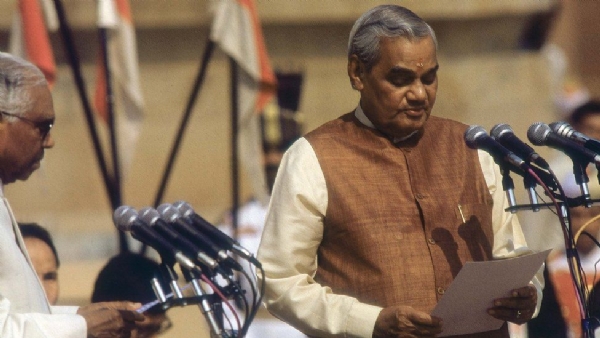
Sworn in as the Prime Minister of India in 1996, Atal Bihari Vajpeyee became the first non - Congress PM of India. However, the government was destined to fail in merely 13 days. But the nation was fortunate enough witness Atal ji as the Prime Minister yet another time in 1998, again for just 13 months, and again in 1999, this time for a complete tenure until 2004.
4. Atal ji's Nuclear Programme
Although, several times portrayed as leader who contradicted his own statements when it comes to arms and ammunition, it was Atal Bihari Vajpeyee who worked out the balance between arms and peace in the real sense. He had said, "You can choose your friends but not your neighbors." After China tested Atom bomb in 1964, it was viewed as a huge threat to India, considering the Sino Indian war of 1962 and the bitter relations between India and China that followed after the war.
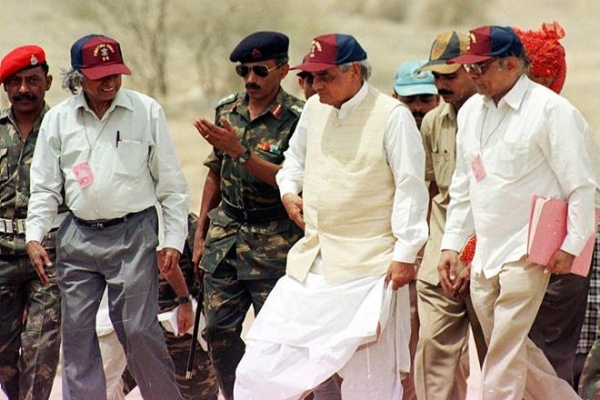
It was Atal ji who prompted the necessity for India to have its own Nuclear programme back in 1964, and stresses, "The answer to an Atom bomb is another atom bomb, nothing else." However, due to the philosophical history of non violence, India still struggled for its acceptance. Atal ji took up the Nuclear programme on priority when he became the Prime Minister in 1996, however, it came to a halt as the government fall. However, with the help of APJ Abdul Kalam, India's nuclear dream became a reality in 1998 after the Pokharan tests were executed with utmost stealth.
5. Atalji's India Pakistan peace
Atal ji had viewed the path of India Pakistan relations to bloom with the flowers of friendship for which he, as the Prime Minister of India, extended the hand of friendship by inaugurating the Delhi -Lahore bus service and travelling to Lahore in the first ride himself. Unfortunately, the friendship that India initiated was not taken forward by Pakistan, as they returned the friendly gesture with another war; the Kargil War 1999.
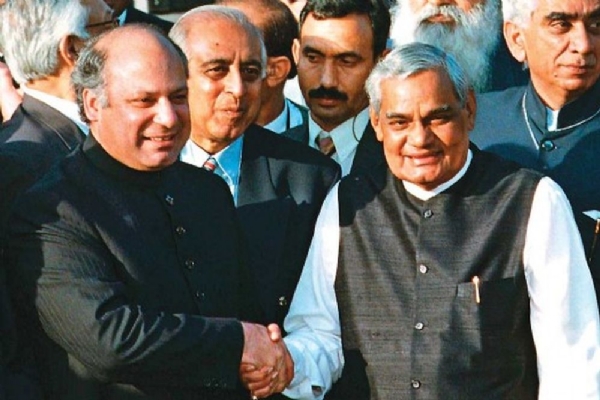
Although, India Pakistan relations didn't turn out to be as Atal ji had planned, after Pakistan deceived the Indian army and breached the agreement between the two forces. With a successful and stern Operation Vijay in retaliation to the Pakistan Army's actions, Atal Bihari Vajpeyee proved it to Pakistan and the world, that India will readily take the first step to initiate friendship but there is no room for betrayal in the friendship.
6. 'Bharat Ratna' Atal Bihari Vajpeyee
The success of Operation Vijay turned the tables for India in international politics. Initially, because of the secretly executed nuclear tests at Pokharan, the word view regarding India had started to turn dark. Despite of the fact that with neighbors like China and Pakistan, the nuclear tests were vital for India, it was only after Pakistan instigated the Kargil war, it became believable for the world that India's security polity is on the right track. Thus, Atal Bihari Vajpeyee ji's leadership during such crucial times, possesses immense significance. This is why, the Indian govt had nominated him for the Bharat Ratna award, soon after the war which he refused saying that "India's victory in the Kargil War happened because of the strength of the Indian soldiers and not myself."
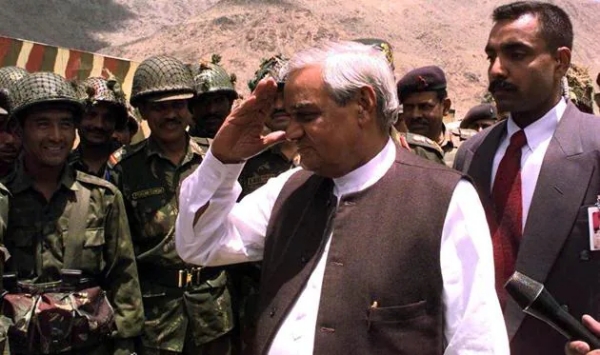
Atal Bihari Vajpeyee was awarded the Bharat Ratna recently in 2015, after being nominated four times, since he couldn't refuse more than that.
7. Love for Rashtrabhasha 'Hindi'
Atal ji's love for Hindi literature and overall for the language is renowned across the world. The reason why this is known across the world is rooted to Atal ji's term as India's foreign minister. During the term of Prime Minister Morarji Desai, Atal ji was appointed the External Affairs Minister of India.
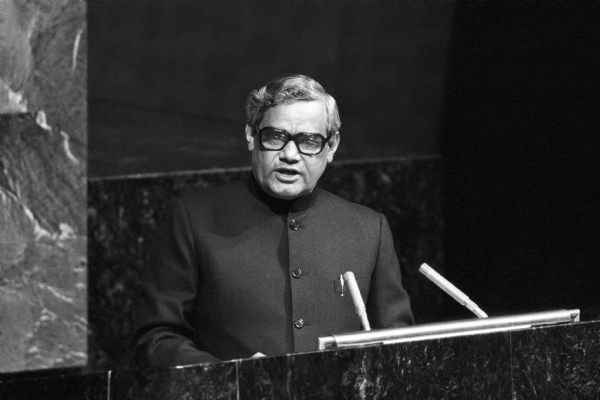
As the External Affairs Minister of India, Atal ji had to address the United Nations General Assembly several times. During his address at the UNGA, despite of being fluent in English, Atalji would intentionally speak in Hindi. Atal ji would proudly speak, not just partially, but his entire UNGA address in Hindi and he is well known around the world for this phenomena.


